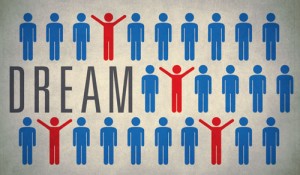Economic Pessimism after the Recession
< < Go Back
How do Americans today feel about the American dream? Karlyn Bowman, Jennifer K. Marsico and Heather Sims of the American Enterprise Institute analyzed polls over the last several decades, finding that 13 percent of Americans in 1986 said the American dream had no meaning for them, according to a Wall Street Journal poll. When that same question was asked by the Washington Post and the Miller Center in 2013, that figure had risen to 19 percent. In both polls, over 60 percent of Americans said the American dream had meaning.
Much of the skepticism toward people’s ability to succeed in today’s economy has roots in the 2008 financial crisis, say the authors. According to polls:
– Just 29 percent of Americans believe the recession created temporary changes in the economy, while 71 percent believe the recession had created a permanent change in economic conditions.
– In 1952, just 8 percent of Americans believed that the average person had little opportunity to succeed in America. In 2013, 43 percent of respondents in a Gallup poll agreed with that statement.
– In 2000, almost three-quarters of Americans said that, compared to their parents, their opportunities to succeed were better, while 5 percent said they were worse. In 2014, 42 percent said their opportunities were better than their parents’ opportunities, while 32 percent contended they were worse.
– In 1990, 50 percent of Americans believed the next generation of children would have a better life than the current generation; in 2014, just 21 percent of Americans agreed.
However, Bowman, Marsico and Sims note that there are certain consistencies across time in Americans’ perceptions about the American dream. For example, 61 percent of Americans in 2012 rated their own standard of living as being better than their parents’ standard of living. Two decades ago, 63 percent of people agreed.
More From NCPA:




